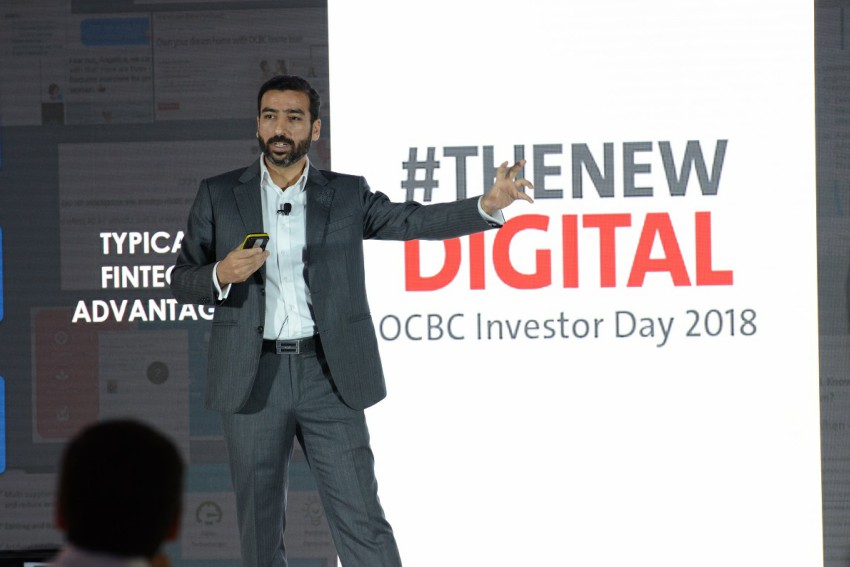Singapore, consistently ranked fourth in the Global Financial Centers Index list of the world’s best financial hubs, has every reason to be complacent about its status.

Its robust and transparent legal framework coupled with its economic and political stability have supported the growth of a vibrant banking ecosystem, while its connectivity and skilled human capital have seen it attract financial institutions from all around the world.
But as technological disruption reshapes the industry and global competition increases, one thing is clear: it is no longer businessasusual for financial services.
To hold on to its competitive global position, Singapore’s industry transformation map (ITM) for financial services aims to cement the city-state’s role as a leading global financial center in Asia – one that connects global markets, supports Asia’s development, and serves Singapore’s economy.
A key focus of the ITM will be to facilitate pervasive innovation in the financial sector and encourage the adoption of technology. Local banks are already rising to the challenge, with OCBC Bank, the second largest financial services group in Southeast Asia by assets and one of the world’s most highly-rated banks, with an Aa1 rating from Moody’s, leveraging on its reputation of stability and strength to revolutionize the sector.
Through The Open Vault at OCBC (TOV), the bank is redefining banking through co-innovation. At TOV, external fintech firms collaborate with OCBC to rapidly test new ideas and solutions before bringing winning prototypes quickly to the market. Ideas springing out of TOV include “Emma”, a home and renovation loan chatbot that has handled 100,000 customer queries and garnered close to $150 million of loans since its launch in January 2017. The bank also implemented a machine learning-enabled anti money laundering system that leverages a proprietary algorithm to enhance the accuracy and speed of transaction monitoring. Through these efforts, the bank has successfully achieved its aim to solve customer pain points, leading to TOV being awarded The Best Innovation Centre by Financial Institution in Singapore at The Asian Banker Financial Technology Innovation Awards 2018.
Pranav Seth, head of e-business, business transformation and fintech and innovation for the bank, leads the digital agenda at OCBC. For him, adopting new technologies such as AI provides a powerful competitive differentiator for Singapore’s financial sector. “AI will be fundamental in refining our core processes and transforming our bank,” he says.
Another key pillar of the financial sector’s ITM is the vision for Singapore to become a center of excellence for wealth management technology and innovation, deepening the country’s talent pool to provide comprehensive, high-quality wealth advisory solutions. In this regard, too, OCBC is a pioneer. In July this year, the bank raised the bar for retail banking wealth advisors, introducing a first-of-its-kind certification program using private banking standards in partnership with the Wealth Management Institute (WMI) of Nanyang Technological University.
In a statement, Dennis Tan, OCBC’s head of consumer financial services, said: “Our ambition is to make our Premier Banking and Premier Private Client businesses the best in Singapore. As the Asian wealth market continues to surge, it is important for us to set the highest professional standards of banking, to capture even greater opportunities in the wealth market.”
The ITM also aims to create 3,000 net jobs in financial services, and an additional 1,000 net jobs in the fintech sector annually. To ensure that the right skillsets are available to support the growth and transformation of the sector, OCBC recently rolled out a massive upskilling programme powered by a $20 million investment to be made available for its 29,000 employees.
While concerns abound globally about the impact of greater digitalization on employment figuresdue to automation of lower-level tasks, OCBC has committed to upskilling its bank tellers to perform higher value-added financial services as it installs the latest ATMs and digital service kiosks at 70% of its Singapore branches by 2020. The redeployed bank tellers will become branch digital ambassadors and service executives or perform other advisory roles.
“This is the branch of the future evolving with digitalization as we seek to continuously enhance customer experience,” said Tan, in a statement. “With the advent of technology, we have retrained staff for higher-value job functions that will transform our business and allow a more efficient workforce to deliver optimum results.”
As Singapore aims to achieve growth in the financial sector of 4.3% through its ITM, local banks such as OCBC will play a key role in ensuring the city-state remains one of the globe’s most influential financial centers for the years to come.
0 COMMENTS